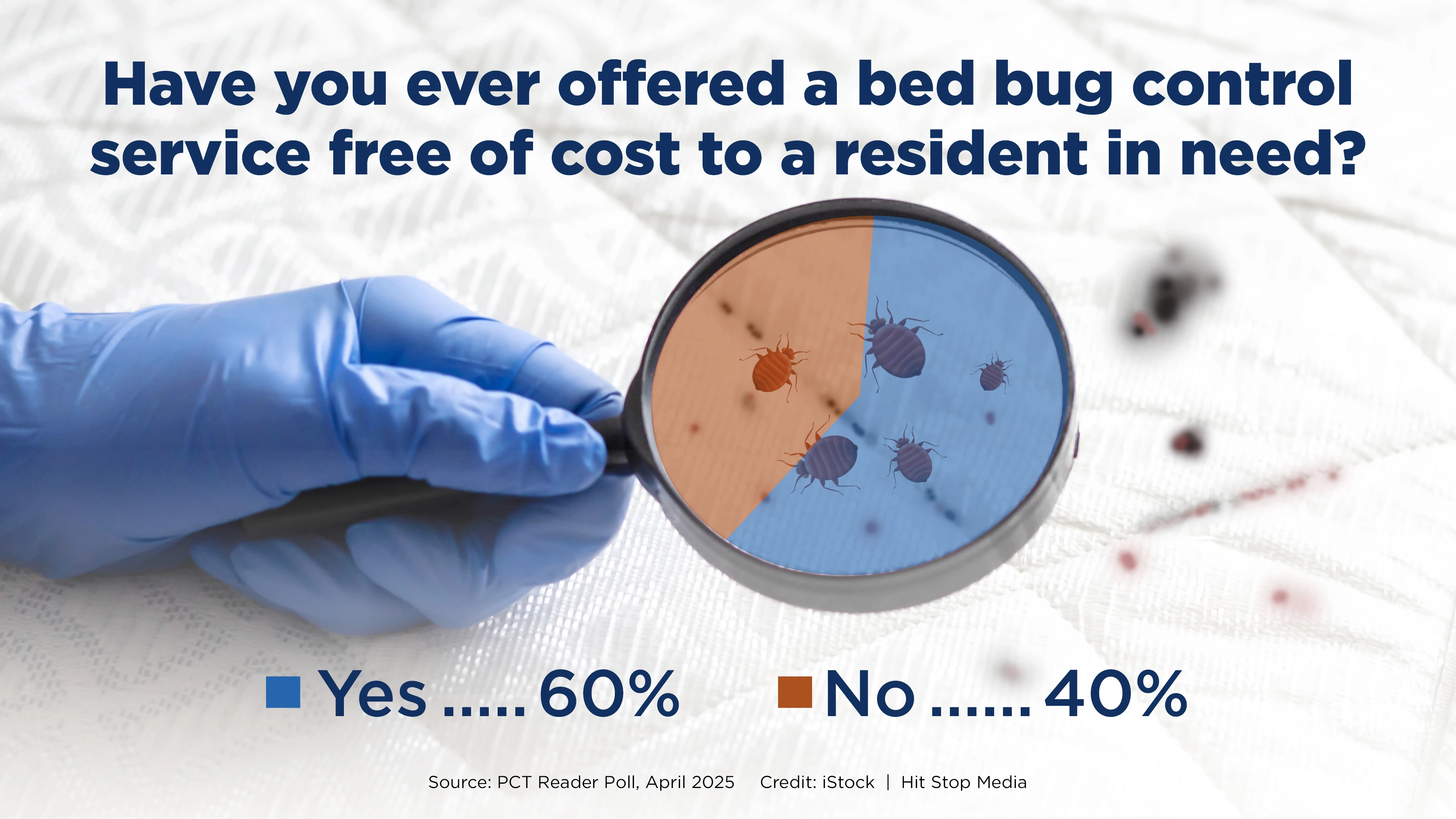
Franchising is one of the hottest trends in American business today and experts predict continued growth in 2016 and beyond. The International Franchise Association (IFA) forecasted the number of franchise establishments in the United States to increase to 781,794 in 2015 and add an additional 247,000 new direct jobs — a 2.9 percent increase from 2014 — to bring the total to 8.8 million jobs directly tied to franchise operations.
The pest management industry is no stranger to franchising. Terminix’s history with franchising dates back to the company’s founding in 1927, and today there are 466 franchised units around the globe, according to the IFA website. Orkin dipped its toe into the franchise pool in the early 1990s and today has more than 60 franchise operations across the globe from Ireland to Chile.
Truly Nolen started offering domestic and international franchises in 1996 and now has 185 branches in more than 55 countries, according to the company’s website. Pestmaster Services, another franchiser born in the 1990s, also offers opportunities for aspiring pest management entrepreneurs.
For an established pest management company, becoming a franchise is not an option, but opportunities do exist to expand their business via the franchise route. One area that has shown growth potential is mosquito control.
THE MOSQUITO MARKET. Consumer tolerance of mosquitoes has lessened in recent years and that means opportunity for pest management professionals. Whether it is because they are simply annoying or due to the potential health threats they present, the need for mosquito prevention and elimination service is growing.
According to the 2014 PCT State of the Mosquito Market report, more than 60 percent of pest professionals surveyed felt their mosquito revenue would increase in the next year. Why the anticipated spike in revenue? Forty percent of respondents indicated that the number of mosquito incidences had increased from the previous year in their market area.
Consumer demand for mosquito services is on the rise with 64 percent of customers specifically requesting a mosquito service be performed and 34 percent purchasing it as an add-on service. As for service frequency, monthly treatments (47 percent) were the most common and a one-time service for special events (e.g., backyard wedding, graduation party, etc.) ranked second at 27 percent.
With consumers investing and placing a greater emphasis on creating outdoor living and entertaining spaces, putting up with annoying mosquitoes isn’t an option. The heightened awareness and media coverage of potential health threats such as West Nile virus and encephalitis has also driven demand for services.
Increased interest in mosquito services also stems from new consumer thinking that relies less on local government and public health agencies to provide mosquito control services — such as nighttime fogging — and shifts the control to the consumer’s hands.
“Consumers want to feel comfortable and safe when they are outdoors,” says Boyd Honeycutt, co-founder of Mosquito Squad, one of the first mosquito franchise options (founded in 2005) and recently named as the top pest control franchise opportunity on Entrepreneur magazine’s Top 500 franchise list. “Mosquito control services have gone beyond a convenience and are now viewed as a necessity in some areas.”
WHY FRANCHISE? Why would an established pest management company look to buy a franchise when they could just add the service to their existing lineup?
The value of being aligned with a national brand that offers extensive marketing support is a primary reason, according to Honeycutt.
“Mosquito control services are marketed differently to consumers than traditional pest management and we have proven systems that closely measure what is and isn’t working,” says Honeycutt. “Adding a franchise also gives owners the chance to brand a new service and create new career paths for existing employees.”
Honeycutt says owners can take advantage of crossover marketing synergies that exist between the existing pest operation and a new franchise. “It will help across the board from introducing ways to streamline back-end operations to growing market share and generating leads,” he adds.
What makes a company a good candidate for a mosquito franchise? Established organizations with a well-developed client list and footprint in the market are ideal franchise candidates, says Kevin Wilson, CEO of Mosquito Joe franchises in Virginia Beach, Va. Mosquito Joe has more than 110 locations across 23 states and also has been named to the Entrepreneur magazine Top 500 list.
“Mosquito control is a solid add-on service option for pest management professionals to consider,” says Wilson. “It is a growing sector and adding a franchise allows companies to offer dedicated mosquito services while at the same time leveraging their other pest services.”
The targeted branding and marketing component of the franchise model is also a plus for pest management companies considering this route. Most franchisors already have developed well-crafted strategies using a combination of social media, direct mail and referrals to drive leads.
Creating a standalone brand and identity for your mosquito control services can yield both financial and operational benefits for your company, and it can expand your marketing reach in the community.
“We have found that owners are very good at managing the technical and operational aspects of their company but where they need help with is driving leads and identifying new consumers to target,” says Wilson.
WHO MAKES A GOOD FRANCHISEE? Being a successful franchisee is a two-way street: You need to align yourself with the right franchise opportunity, but you also have to be willing to open your mind to new ways of thinking and operating. Both Mosquito Joe and Mosquito Squad have developed business support programs that were developed through trial and error, and that are proven to work.
“You do things a certain way in your business and the best franchisees are the ones that come into it with an open mind and a willingness to adapt,” says Wilson. “There is always something to be learned when you are introduced to new approaches to managing and growing a business.”
Mosquito Squad’s Honeycutt says potential franchisees benefit from the proven operational and marketing strategies offered by the company but that success still comes down to one thing — customer service. “Doing what you say you will do, doing it when you promise it will done and listening to the customer are the keys to success no matter the type of business or what franchise you select,” says Honeycutt.
The author is a partner of B Communications. Email him at jfenner@giemedia.com.
WANT MORE?
Enter your email to receive our newsletters.

Explore the April 2016 Issue
Check out more from this issue and find your next story to read.
Latest from Pest Control Technology
- Target Specialty Products, MGK Partner for Mosquito Webinar
- Cockroach Control and Asthma
- FORSHAW Announces Julie Fogg as Core Account Manager in Georgia, Tennessee
- Envu Introduces Two New Innovations to its Pest Management Portfolio
- Gov. Brian Kemp Proclaimed April as Pest Control Month
- Los Angeles Ranks No. 1 on Terminix's Annual List of Top Mosquito Cities
- Kwik Kill Pest Control's Neerland on PWIPM Involvement, Second-Generation PCO
- NPMA Announces Unlimited Job Postings for Members






